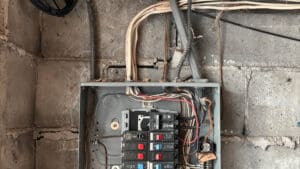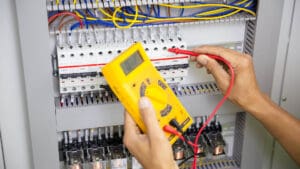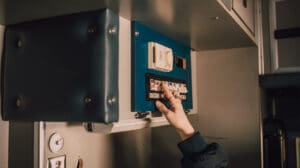A functional smoke alarm in your home is a no-brainer when it comes to protecting your family and yourself from fire. While all smoke alarms help to detect potential smoke and alert you of fire danger, there are various smoke alarm types to choose from, depending on your needs. This article discusses how to choose the right smoke alarm for your home.
An Overview of Smoke Alarms
Smoke alarms detect smoke particles and alert people of a fire or potential hazards. Smoke alarms come in two broad types; either ionisation or photoelectric.
Ionisation Alarms
These types of smoke alarms are very sensitive and can pick up the small smoke particles present in fast-burning fires. However, these alarms are prone to false alarms from steam, food and other sources which contain small amounts of smoke.
Photoelectric Alarms
These types of alarms are primarily used to detect slow-burning and smouldering fires. The photoelectric sensor detects the larger particles of smoke associated with these types of fires and is less likely to be triggered by false alarms.
Smoke Alarm Regulations in New South Wales
The laws regarding smoke alarms in NSW require the following:
- Smoke alarms must be installed on each level of a home, outside bedrooms.
- All battery-operated smoke alarms must be tested regularly.
- Hardwired smoke alarms must be maintained regularly.
- Any smoke alarms reaching their expiry date (usually ten years) must be replaced.
Factors to Consider When Choosing a Smoke Alarm
Once you have established the type of smoke alarm that is compliant with your local regulations, there are a few factors you should consider when selecting your smoke alarm.
1. Battery or Hardwired?
Battery-operated smoke alarms are very simple to install compared to hardwired smoke alarms. They are usually self-contained, meaning that they do not require additional power. However, battery-operated smoke alarms must be tested regularly to ensure they are in working order. Hardwired smoke alarms are more complex to install and require additional components, but they provide peace of mind because they are continuously monitored and may have additional features.
2. Alarm Type
As mentioned earlier, there are two types of smoke alarms to choose from; ionisation and photoelectric. It is crucial to consider the type of fire risk in your area and choose the appropriate alarm for your home.
3. Interconnectivity
Consider installing smoke alarms that are interdependent. Interdependent smoke alarms are wired straight into the mains power and can ‘talk’ to each other – when one smoke alarm is triggered, all the smoke alarms in the home will go off. This is a useful feature to consider if you have multiple levels in your home, as each alarm is connected and will alert you of the presence of smoke even if the smoke is in a different part of the house.
Having functional smoke alarms installed on each level of your home is a great way to provide protection and peace of mind. To get started with your smoke alarm installation, contact Express Tech Electrical Services. Our trusted electricians can assist with all your smoke alarm needs, including testing and maintenance.





